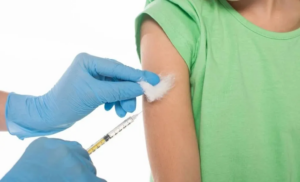
How to “protect health and prevent serious illness” in rural areas? Professional answers
- Q: How to “protect health and prevent serious illness” in rural areas?
A: China’s rural areas are vast, with a large population and relatively insufficient medical resources per capita. In order to minimize the impact of the new coronavirus infection and better protect the health of rural residents, all regions focus on the goal of “protecting health and preventing serious illness”, highlighting the management of key populations, and achieving “forward shift” of medical treatment, the core of which is The core is “early detection, early identification, early intervention and early referral”.
“Early detection” is mainly for the elderly over 65 years old, maternity, children, people with disabilities and other key groups of one-on-one package contact, no less than two times a week contact services, timely detection of problems, timely disposal.
“Early identification” is to strengthen the health monitoring of these key populations, the possible emergence of some cases, such as the complications of some basic diseases, the first signs of the risk of new crown serious illness and tendency symptoms, to identify, timely guidance and referral.
“Early intervention” is to be equipped with the necessary oxygen therapy equipment at the grassroots level, such as oxygen bags, oxygen cylinders, oxygen machines, but also equipped with portable oximeters to monitor blood oxygen, the discovery of abnormalities, quickly give oxygen and the corresponding drug therapy, while combining the actual timely referral.
“Early referral” is the discovery of patients who need to be referred to a higher level hospital to receive treatment in a timely manner.
- Q: Can people who have been living in rural areas be infected with the new coronavirus?
A: The population is generally susceptible to the new coronavirus. Omicron variant strains are highly transmissible and spread quickly. During and around Chinese New Year and festivals, the movement of people increases, more people return to their hometowns, and there will also be many tourists coming and going, plus interpersonal exchange activities such as festive entertainment, gatherings and parties, visiting friends and relatives, all of which increase the risk of rural residents contracting the new coronavirus.
- Q: What are the precautions for catching a fair or going to a farmer’s market or supermarket?
A: When rushing to the market or going to the farmers’ market or supermarket, you should wear a mask throughout, avoid others when coughing or sneezing and do not take off the mask, and do not spit anywhere. When selecting goods or queuing for checkout, maintain a social distance of more than 1 meter from others. Pay attention to hand hygiene and keep contact with public facilities and objects to a minimum. Wash your hands or use hand sanitizer in a timely manner and do not touch your mouth, eyes or nose with unclean hands. Advocate a combination of online and offline procurement, and encourage convenient services such as online procurement, home delivery and contactless transactions.
- Q: Why is it important to improve environmental hygiene in the village? How can I wash my hands without running water at home? How can folks help each other?
A: Environmental sanitation in the village is closely related to health. Littering, dumping sewage, piles of firewood and grass, loose livestock, not only affect the village appearance, but also create conditions for the breeding and prevalence of various infectious diseases, laying a hidden danger to the villagers’ health. Should do a good job of environmental improvement, household waste sorting, daily production, garbage, sewage centralized treatment; protection of drinking water sources, management of sewage drains, stinking ponds; poultry, livestock captivity, each family to do the yard and the surrounding environment clean and tidy.
If there is no running water or other clean mobile water source at home, ask others to use a basin, scoop, kettle and other utensils to hold water and pour it on their hands to form a flowing water rinse.
Take the initiative to care for and visit neighbors under the premise of good personal protection, provide help to the folks in need such as buying daily necessities and emergency medical treatment, and share the surplus of therapeutic drugs, masks, disinfection supplies, etc. to the folks in urgent need.
- Q: Do we still need to do simple weddings and funerals? What should I pay attention to when visiting friends and relatives?
A: Weddings and funerals should be as simple as possible, and the scale should be controlled appropriately to avoid a big celebration. When the epidemic is serious, we should follow the rules and requirements of local epidemic prevention and control to reduce the gathering activities.
Try not to hold large-scale family gatherings, reduce the size and number of family and friends gatherings, and shorten the gathering time. Advocate telephone and internet greetings.
Do personal protection when visiting friends and relatives, wear masks, pay attention to hand hygiene and maintain social distance.


Average Rating